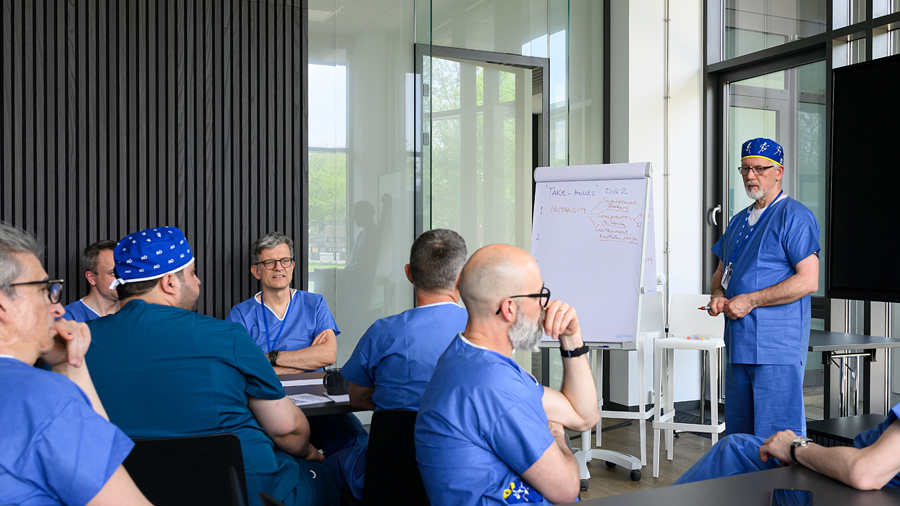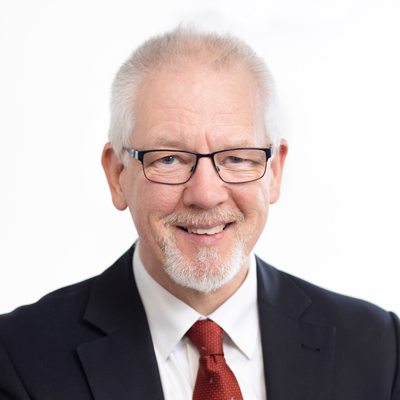Meet the expert: Simon Lambert

Our popular “Meet the Experts” format offers the opportunity to learn about the AO Technical Commission's most recently approved medical devices and to explore hot topics in trauma and orthopedic surgery. Our expert surgeons are directly involved in the development of new implants and instruments. During live sessions held inside The Shard, RIMASYS’ mobile wet lab, they will showcase the clinical benefits of innovative devices and surgical techniques. The sessions will be streamed live and available thereafter on our website.
Simon Lambert
Chairperson of the Upper Extremity Global Expert Committee, part of the AO Technical Commission, and consultant orthopedic surgeon at University College Hospital, London, United Kingdom.
Can you tell us a bit more about your work for the AO TC?
I am privileged to work with many groups within the AO TC, including Medical Scientific Affairs, the Shoulder Expert Task Force (SHTF) and the Upper Extremity Global Expert Committee (UEGEC). My role is to develop and support the strategic direction of upper extremity research and implant development through networking with other divisions and institutes within the AO landscape in close collaboration with our colleagues at DePuy Synthes (DPS). I advocate on behalf of my colleagues on the UEGEC and their respective groups and advise AO and DPS colleagues in terms of logistic and strategic goal-setting to maintain momentum in the various projects. My overall aim is to promote talented individuals and groups to be able to deliver their ideas and aspirations, harmonise the efforts of our experts, and mentor new members into highly valued and effective roles within the TC.
How does your role in the AO TC link to the “Meet the Experts” session you will present at the AO Davos Courses (AO DC) this December?
My colleague Dr Joyce Koh and I will present the new ‘universal’ proximal humeral plate, a derivative of and successor to the highly successful PHILOS system, and the product of three years of discussions and iterative development within the SHTF. It will incorporate the VOLT technology platform. We will demonstrate the features which distinguish it from the PHILOS, outline the research that has been initiated to define important principles in its application and discuss its utility from a global perspective.
What does it take to become an “expert surgeon”?
Think, read, listen, practice, then critical self-appraisal—and repeat. There is always more to learn, but knowledge is only one part of the equation of expertise. Developing judgement takes time and is the product of carefully considered evolution in personal and professional skills and an attitude that nurtures intelligent creativity (Einstein: “Creativity is intelligence having fun”) and, where indicated, boldness of action (Einstein again: “A person who has never made a mistake has never tried anything new”). Get involved in research and teaching—the first teaches us how to question (Einstein, yet again: “Logic will get you from A to B; imagination will take you everywhere”), the second how to learn, describe and explain (Einstein, and yet again: “Everything must be made as simple as possible…”).
What other area (apart from surgery) do you consider yourself an expert in?
I have many interests, in- and outside clinical practice, but if I am known for anything it is perhaps understanding the functional anatomy of the upper extremity.
You have participated in the AO DC numerous times. What is your fondest memory?
Some years ago, sitting in the house of Stefan Perren with Pietro Regazzoni, to discuss aspects of fracture healing and realising I was being gently coached into a better way of thinking.


